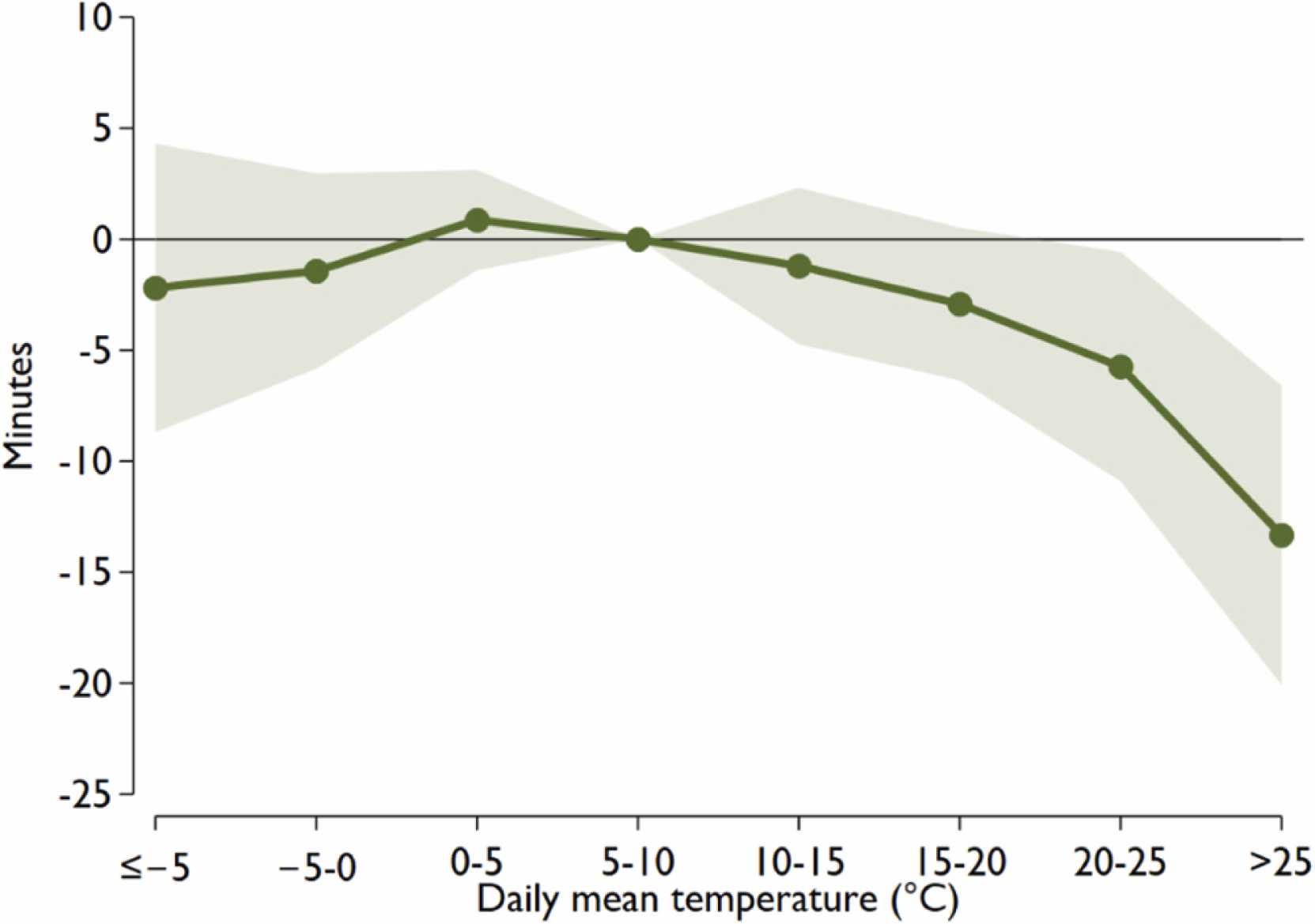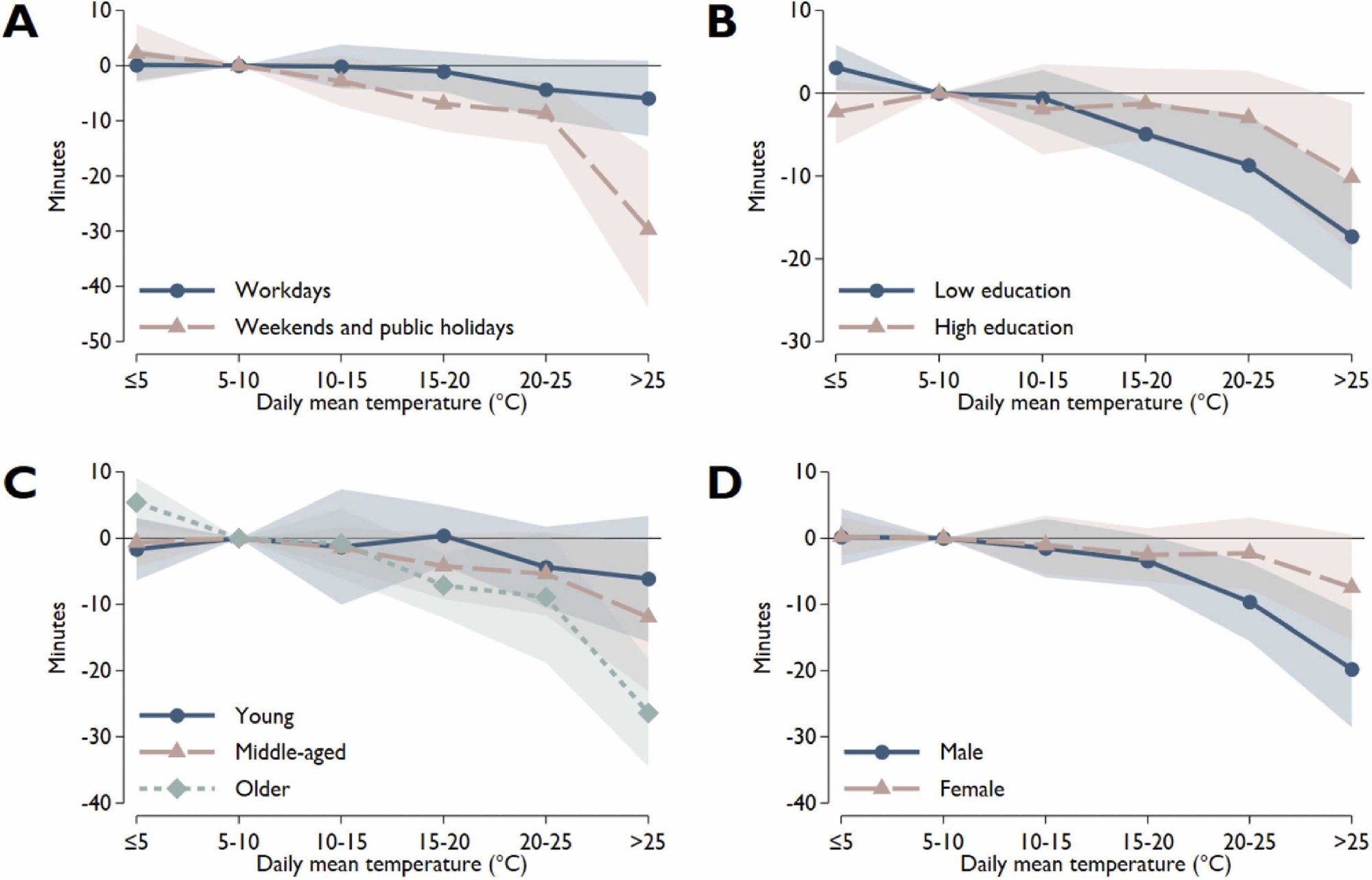Calculations show how much sleep we lose during hot weather - yet another effect of climate change we need to take into account
Summer heat, early autumn warmth, or perhaps a heatwave in May? High temperatures not only take a toll on our bodies but also disrupt our sleep. And with climate change, it's something we’ll have to get used to. Tamás Hajdu, a researcher at the Institute of Economics at the HUN-REN Centre for Economic and Regional Studies (HUN-REN CERS), has crunched the numbers to show how much less sleep we’re getting during heatwaves and how many minutes our sleep could decrease by 2050.
The researcher from HUN-REN CERS analyzed the link between temperature and sleep duration using data from time-use surveys in Hungary, spanning the period between 1976 and 2010. In simple terms, researchers analyze the impact of temperature on our sleep by comparing the average amount of sleep recorded on cooler days with that on warmer days within the same county, month, and year.
Based on the results, on days when the average temperature exceeds 25°C, we sleep roughly 13 minutes less on average. Moreover, on days with an average temperature between 20-25°C, our sleep time is shortened by 6 minutes. In contrast, there is no significant difference between cold and mild temperature days. That is, the amount of sleep is independent of whether the daily average temperature is -5°C, +4°C, or +10°C.

However, it does matter which days are hot. On non-working days, an average temperature above 25°C reduces sleep duration by 30 minutes, while on a working day it only decreases by 6 minutes, the researcher found. Naturally, besides the differences between work and non-work days (A), the CERS researcher also took into account gender differences (D), the issue of education level (B), and age (C).

The data also show that individual factors influence how we respond to heat. For example, the older a person is, the less they sleep on a day with an average temperature above 25°C. For those aged 18-40, the sleep loss is an average of 6 minutes, for those aged 41-60, it's 12 minutes, while for those aged 61 and older, it's 26 minutes. Additionally, people with lower education levels and men are more affected. But where does this lost sleep come from on hotter days? Do we wake up earlier or go to bed later?
”The results indicate that the reduction in sleep time is mainly due to waking up earlier. However, it’s important to note that I used time-use data, which means the periods labeled as sleep don’t necessarily reflect actual sleep. This has less effect on determining wake-up times, but it’s quite possible that warm weather delays falling asleep without changing bedtime hours. As a result, the time marked as sleep in the time-use diaries begins around the same time regardless of external temperature, but the actual time spent sleeping decreases in warm weather," explained Tamás Hajdu.
Moreover, estimates suggest that if the pace of climate change doesn’t slow down, under a pessimistic scenario, by 2050 we could be sleeping an average of 6.5 hours less per year. Even in a moderately optimistic scenario, sleep loss would still amount to around 4.3 hours.
The researcher suggests we may adapt to this situation, but he emphasized that the impact of climate change on yearly sleep duration is distributed throughout the year. However, the majority of this sleep loss will likely be concentrated in the summer months.

